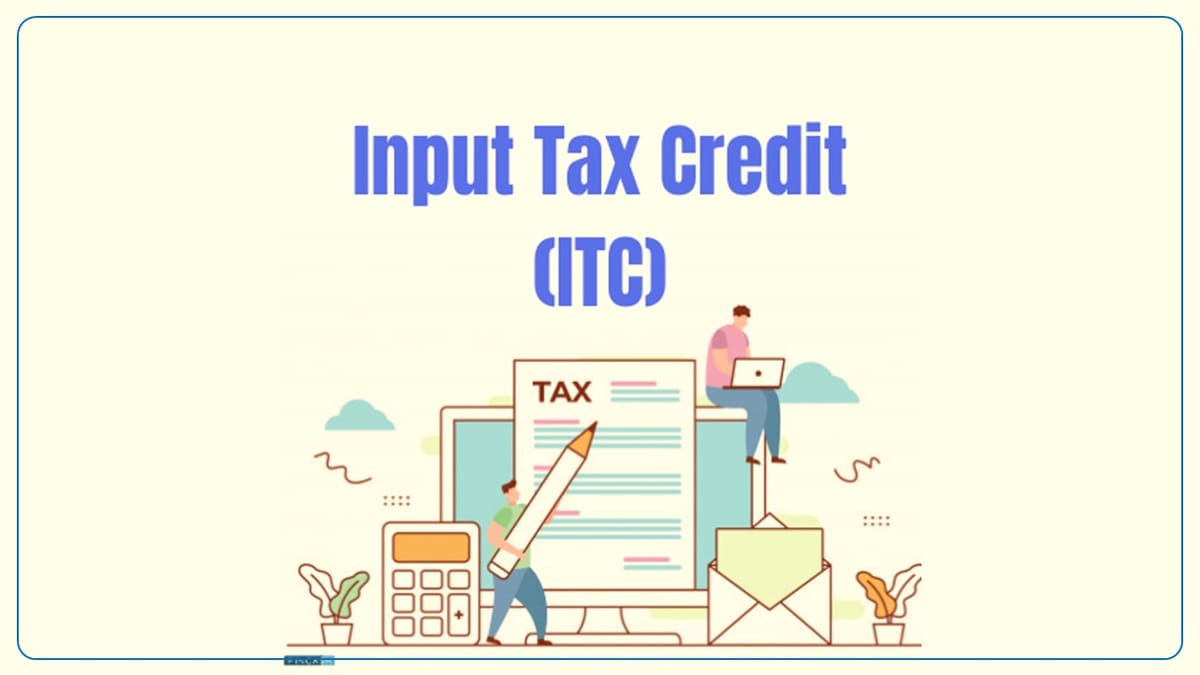CA Pratibha Goyal | Aug 22, 2023 |

ITC to be denied to Buyer if supplier fails to pay GST to Government even after collecting from buyer: HC
Points to be noted:
Input Tax Credit (ITC) is in the nature of a benefit/concession and not a Statutory Right. [ALD. Automotive Pvt. Ltd. v. The Commercial Tax Officer & Ors. (Civil Appeal Nos. 10412-10413 of 2018)]
Authority can provide restrictions at time of giving benefit/ concession in form of ITC. Necessarily, the conditions for such availment of credit has to be scrupulously followed failing which there can be no benefit conferred on the assessee. The benefit is one conferred by the statute and if the conditions prescribed in the statute are not complied; no benefit flows to the claimant. [ALD. Automotive Pvt. Ltd. v. The Commercial Tax Officer & Ors. (Civil Appeal Nos. 10412-10413 of 2018)]
Burden of Proof of ITC lies with Claimant of ITC: The dealer who claims Input Tax Credit has to prove beyond doubt, the actual transaction by furnishing the name and address of the selling dealer, details of the vehicle delivering the goods, payment of freight charges, acknowledgment of taking delivery of goods, tax invoices and payment particulars etc. To sustain a claim of Input Tax Credit on purchases, the purchasing dealer would have to prove and establish the actual physical movement of the goods & genuineness of transactions, by furnishing the details referred to above and mere production of tax invoices would not be sufficient to claim ITC. [Hon’ble Supreme Court in The State of Karnataka v. M/s Ecom Gill Coffee Trading Private Limited]
The conditions for enabling ITC benefit, are available in Clauses (a) (b) and (c) of Section 16(2) which are in seriatim; the existence of a tax invoice or debit note issued by the supplier, proof of receipt of goods or services or both and the tax charged in respect of such supply having been actually paid to the Government, either in cash or through utilization of Input Tax Credit admissible in respect of the said supply.
The said conditions for availing ITC are to be satisfied together and not separately or in isolation, and these are the conditions and restrictions which would regulate the availment of Input Tax Credit. Input Tax Credit by the very nomenclature contemplates a credit being available for the purchasing dealer in its credit ledger by way of payment of tax by the supplier to the Government.
Producing invoices, account details and the documents evidencing transportation of goods does not absolve the assessee from the rigor provided under sub-clause (c) of Section 16(2) of the BGST Act, which requires the credit of tax, collected from the purchasing dealer; either in cash or through utilization of admissible Input Tax Credit, being available in the context of the supplier having actually paid tax to the Government.
This in effect is a burden of proof cast on the purchasing dealer who claims Input Tax Credit, which is a right created under statute; sustained only under the specific terms of the statute.
The Recipient Purchaser cannot content for double taxation since the claim of ITC is denied only when the supplier who collected tax from the purchaser fails to pay it to the Government.
The word ‘Input Tax Credit’ itself postulates a situation where the purchasing dealer has a credit in the ledger account maintained by it with the Government. The said credit can only arise when the supplier pays up the tax collected from the purchaser. The mere production of a tax invoice, establishment of the movement of goods and receipt of the same and the consideration having been paid through bank accounts would not enable the Input Tax Credit; unless the credit is available in the ledger account of the purchasing dealer.
The seller and purchaser have an independent contract without the junction of the Government. The statute provides for a levy of tax on goods and services or both, supplied by one to the other which can be collected but the dealer who collects it has also the obligation to pay it up to the State. The statutory levy and the further benefit of Input Tax Credit conferred on the purchasing dealer depends not only upon the collection by the seller but also the due payment by the seller to the Government. When the supplier fails to comply with the statutory requirement, the purchasing dealer cannot, without credit in his account claim Input Tax Credit and the remedy available to the purchasing dealer is only to proceed for recovery against the seller. Even if such recovery from the supplier is effected by the purchasing dealer; the State would be able to recover the tax amount collected and not paid to the exchequer, from the selling dealer since the rigor of the provisions for recovery on failure to pay up, after collecting tax, enables the Government so to do.
It is clear that the literal nomenclature and the statutory language, mandates that there should be credit available in the credit ledger of the purchaser to claim Input Tax and otherwise the claim would be frustrated.
For Official Judgment Download PDF Given Below:
In case of any Doubt regarding Membership you can mail us at [email protected]
Join Studycafe's WhatsApp Group or Telegram Channel for Latest Updates on Government Job, Sarkari Naukri, Private Jobs, Income Tax, GST, Companies Act, Judgements and CA, CS, ICWA, and MUCH MORE!"